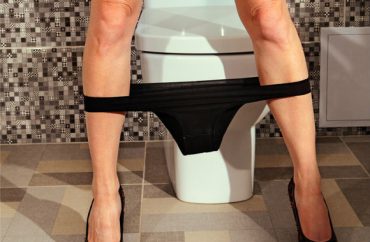
The University of Wisconsin-Madison is rolling out a new pilot program to provide free menstrual products in several of its campus bathrooms — including some men’s restrooms.
The public university will offer the women’s hygiene products in three campus buildings. In two of them, Helen C. White and Sterling halls, the products will be available in all of the women’s restrooms, said Steve Wagner, a spokesman for the school, in an email to The College Fix.
But in a third venue, the Red Gym, the products will be available in all of the building’s bathrooms, he said.
Asked why women’s hygiene products are needed inside men’s bathrooms, Wagner said: “Menstrual products will be available in all of the bathrooms of the Red Gym so that they are available to any student who might need them.”
It appears the products are needed in men’s bathrooms to benefit transgender males (biological women who identify as male).
The three-level Red Gym houses the institution’s Lesbian, Gay and Transgender Campus Center, the Office of Multicultural Arts Initiative, Multicultural Student Center and a variety of other student and academic programs and divisions, according to its website.
The free tampon program was brought forth by the university’s student government. Student Rep. Katrina Morrison called purchasing menstrual products “an unnecessary burden,” according to the Badger Herald campus newspaper.
“Having them be free and readily available in campus buildings is definitely a necessity,” she said.
Student leaders cited other large universities that have installed free tampons in bathrooms as one big reason why it was needed at the University of Wisconsin-Madison, which is also not the first to place them in men’s bathrooms as well.
The program is slated to launch at the end of the month and run through December, the Herald reports.
The Herald also ran a “clarification” on its article, stating “a previous version of this article referred to these products as women’s hygiene products.” The article appears to have replaced “women’s hygiene products” with “menstrual products.”
The university will reportedly be looking at the most cost efficient way to handle the pilot program by determining whether to renovate the existing dispensaries to ensure they’re free of charge, or scrap the old dispensaries and purchase new ones.
According to The Cap Times, in the fall of 2015, Wisconsin State Assembly Rep. Melissa Sargent, D-Madison, announced legislation to provide feminine hygiene products in all public school and government building bathrooms in Wisconsin. Sargent was met with stark criticism, and her plan ultimately failed.

No comments:
Post a Comment